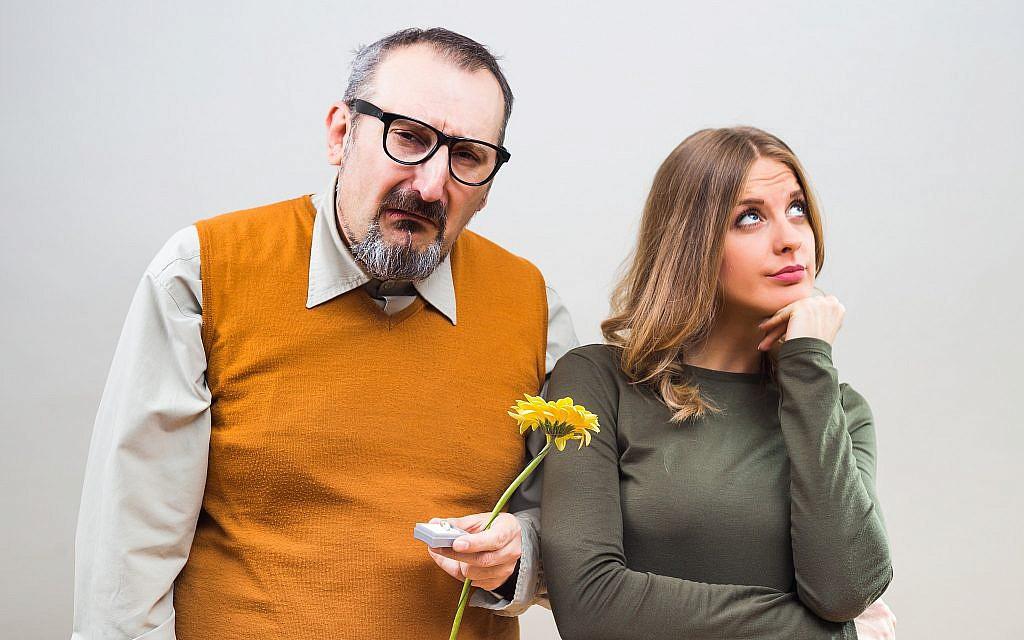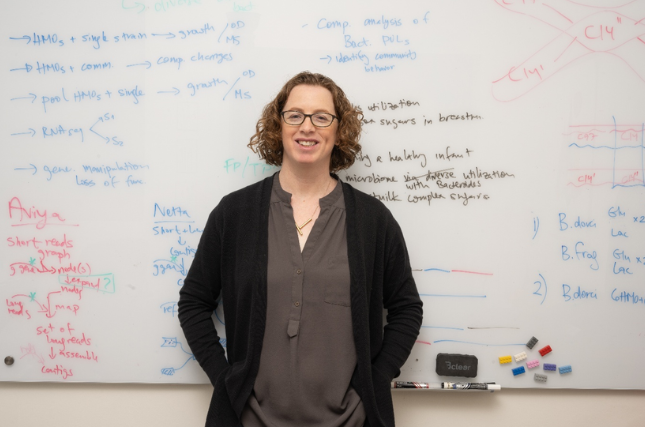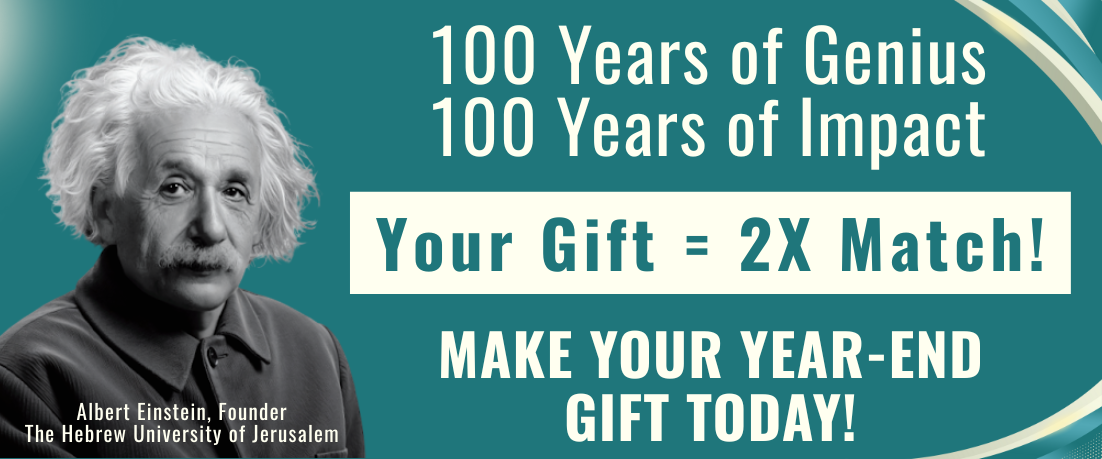
The whole love and marriage thing isn’t for everyone, but sometimes it feels like it should be — especially for those who frequently find themselves sitting at the kids’ table at one Jewish function or another.
Fortunately, if you’re enjoying the single life, a new book by Hebrew University’s Dr. Elyakim Kislev confirms that you are not alone: Singles are statistically likelier to have more fun, more active and far-reaching social networks — and yes — a better sex life than their married friends.
For his book, “Happy Singlehood: The Rising Acceptance and Celebration of Solo Living,” the Israel-born Kislev analyzed data from 300,000 people in 31 countries, and conducted in-depth interviews with 150. The research concluded that not only are there a growing number of single people – 25 percent of people in the United States today will never marry – but that their solitude is an increasingly conscious decision.
Thirty percent of men and 26% of women in Japan, Kislev says, don’t consider their singledom a stop on the path to marriage, but a destination in itself. This can be attributed, he says, to factors such as increased social and financial independence for women, as well as the ubiquity of social media.
Full disclosure: “Happy Singlehood” might not help you make the case to concerned friends or family about why you’re staying home with a good book this Valentine’s Day. But it can go a long way towards soothing the seeds of doubt sown by those who think they’ve got it all figured out.
“You’re missing an absolutely beautiful day in Tel Aviv,” Kislev tells a reporter who telephoned him from the library in what was once Gestapo headquarters in Berlin.

With the wind blowing and the mercury hovering uncomfortably close to the freezing point, Berlin’s signature steel-gray skies aren’t particularly encouraging — and the symbolism behind Kislev’s comparatively sunny view doesn’t go unnoticed. After all, the 37-year-old “Happy Singlehood” author is happily single himself, and says he wouldn’t have it any other way.
“Singles are now the majority in many Western countries,” Kislev says. “And there’s so much potential for tapping into them as a group. They can be organized into voting blocs; in consumerism there can be certain products targeted at them, housing markets, fashion – it’s really endless.”
Kislev took a break between meetings to share with The Times of Israel why he believes that not only will the singles phenomenon continue to grow, but that we should already be adapting to it.
The following interview has been edited.
Okay, first off — is this book just a way of explaining to your parents why you’re still single?
Not really. If I wanted to answer my parents I would have written something like, “This is a huge phenomenon,” and all about the phenomenon. But the book is not about the phenomenon itself – it’s about the quality of life. It’s more an answer to myself and to other people for whom it’s already a given that they’re singles, who are not trying to justify anything. The book discusses ways that singles can maximize their quality of life, deal with discrimination, what values they have, how they can forge communities, and so on.
Why do you think people are staying single for longer these days?
There are several reasons for this. Maybe the most important one is that women’s status is much improved nowadays, so they don’t feel the pressure to be with a spouse and to get married, and they invest in their education and their career, and so on. So they delay marriage, and if they don’t feel comfortable with their husband, they just get divorced. We also have migration – internal migration, international migration, urbanization. So people move around and they don’t want to be tied down.
There are also economic reasons – and this is very surprising. All economic conditions, no matter what, lead people to be single. So we see that in Sweden, for example, the government subsidizes apartments for young people, so they think, “Okay, if I have a cheap apartment I can live by myself, I don’t need to marry in order to save money.” And in other countries we see the opposite – because if people prosper and have money, one of the “goods” they buy themselves is privacy – they want their independence, and they pay to be alone.
But it’s remarkable because even in Italy and Spain after the recession, they went through this huge recession and you’d think that okay, so these people don’t have money, the country can’t subsidize their living expenses, so they’ll probably end up getting married, right? But no, what they actually did was go back and live with their parents, and keep the disposable income. They call them bambuccini, grown babies. So it’s remarkable — all economic conditions lead to single living.

It seems like there’s a bigger emphasis on friends, family, and being in a relationship in Israel than other countries – and getting married at a younger age.
I don’t have numbers on Israel, my research is focused on Europe and the US. But I can tell you that the comparison I made in terms of levels of happiness and well-being, I can tell you that singles in Israel are far behind. They don’t feel so good about themselves, and they probably feel the pressure to marry. It is a part of the culture – for example, we do know that Israel is first among OECD countries in terms of birthrate, children per woman. Even Turkey and Mexico, and of course Europe and the US, are far behind. In Israel I think it’s around 3.1 children, and even in Mexico and Turkey it went from five, six, seven children a few decades ago to 2.1 or 2.5 today, and in Europe it’s 1.3 or something like that. So in this sense I know that Israel is a leading country in family values and pressure to marry, and so on.
Is loneliness not an issue compared to earlier generations?
Many people criticize technology and say that we’re lonelier than decades ago, but actually, single people became more social and more connected. Now, we refer to singles as “networked individuals.” Technology makes us more connected, and at least facilitates ways for people who want to be connected, to be connected. We also see that in recent decades, married people became lonelier while the single population became more connected, and that’s due to technology. I see in my research that singles use the internet more extensively. So they use it to be more connected, and I guess it alleviates the feeling of loneliness.

With marriage equality and all that’s going on today, does the LGBT community face the same pressure for singles as the heterosexual community?
I’m not absolutely sure about this, but I can think of two sides, and it’s kind of complicated. One the one hand, LGBT people might feel more comfortable being single simply because in the past they were already placed outside the mainstream. And they’ve had to innovate more as far as family status and family conditions, which could make that part more flexible for them.
At the same time, LGBT people are leading the fight for marriage equality and push for marriage more than heterosexual people do – but I think one of the reasons for this is that they are still struggling for equality in general. It also depends, I guess, on where people are living. In New York City I think people are more comfortable being single, so they don’t care, but in other parts of the US and Europe, maybe they do want to get married to feel more a part of the community, otherwise they might feel like outsiders. So yeah, it’s complicated.
You said the birthrates have gone down in many countries – do you see this trend of staying single as having a positive impact, a negative impact, or something in between?
I don’t know – I’m a researcher and I really like it this way, and I don’t want to be judgmental about any phenomenon. This is simply a phenomenon, and I think that the challenge now is not to judge the phenomenon of singlehood, but just to recognize that this isn’t going to change, that in fact it’s going to grow, and now to find ways to cater to the single population. To take care of them, to have facilities, community centers, services, and think in terms of policy making how do we make the single population more comfortable, more connected, and happier.

Is an aging single population a concern?
That’s a huge question, but let’s talk about the personal perspective first and the collective policy perspective after. First, we ourselves care a lot about, and we fear, aging alone. Actually many studies show that aging alone is such a big fear that we enter into wrong relationships and compromise about partners, and some studies even show that we go back to exes that we know that they are not good for us, but we still go back because we feel lonely and we fear being lonely in old age.
I show in my book that the fear of being alone in old age is bigger – and it’s just like how we often have a greater fear of the unknown – and then the negative expectations usually don’t materialize. So we see that, for example, people fear disability and immobility in old age, and the actual consequences are much, much better – many more people fear it than actually happens.
So, many people fear aging alone and get married, but get divorced after 10 or 20 years, and then they made a double mistake: They got married to the wrong person, and they’re still alone in their old age anyway. So I’m not sure the future needs to be such a factor in our decision making.
In terms of the collective, we do need to think of it at some point. We know that there’s a lot of innovation around that question in Japan, which is leading the world in terms of robotics and other technologies to help people who are aging alone. So we’ll have to define the problem, and if this is the problem and we need someone to help these people, we will find ways to deal with it. But this is the reality. We can’t force people to marry just to solve a hypothetical problem in the future.




